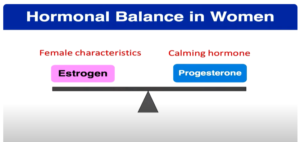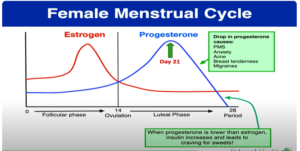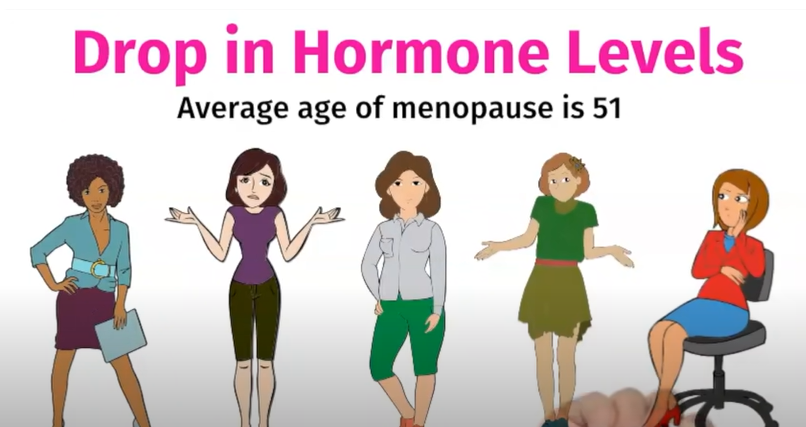Menopause is a significant stage in a woman’s life, marking the end of her reproductive years. Typically, this condition occurs between the ages of 45 and 55, though it varies for each woman. Symptoms often shows up as menopause, hot flashes and weight gain. 
Menopause, Hot Flashes, and Weight Gain
The official definition of menopause is when a woman has gone 12 months without a menstrual period. Women may become a little ambivalent during this stage of life due to changes in their body in terms of hot flashes and weight gain. They either love it or hate it.
Common symptoms of menopause include hot flashes, night sweats, mood swings, and sleep disturbances. These symptoms are the body’s way of adjusting to shifting hormone levels, specifically the decrease in estrogen and progesterone production by the ovaries. It’s completely natural but is quite challenging for many.
Hormonal Changes
The hormonal changes during menopause may sound intimidating, but they’re part of a normal biological process. Estrogen and progesterone levels fluctuate and eventually decline, leading to various physical and emotional changes. Understanding these changes can help you prepare and manage them more effectively. 
Menopause is more than just physical changes; it’s a significant milestone that marks a new phase in a woman’s life. Many women use this transition period as an opportunity for self-reflection and personal growth. It is a time to focus on health, wellness, and new interests.
Embracing Menopause as a Natural Life Stage
The importance of recognizing menopause as a natural life stage cannot be overstated. Accepting it as a normal part of aging can empower you to seek the support and resources you need. Remember, experiencing menopause is something all women go through, and you’re definitely not alone.
Menopause and Hot Flashes
Causes and Management
Hot flashes are sudden feelings of heat that can spread throughout the body, but they’re most commonly felt in the face, neck, and chest. These can vary in intensity and duration, often accompanied by sweating and a flushed appearance. For some, they can be mildly annoying; for others, they can be debilitating.
Hormonal Fluctuations
Hot flashes occur due to the hormonal fluctuations that happen during menopause. When estrogen production drops, the body’s temperature regulation goes a bit haywire. The brain misinterprets these fluctuations, causing a chain reaction that results in a hot flash.
Managing Hot Flashes
Managing hot flashes often requires some lifestyle adjustments. Keeping cool is crucial—wearing light, breathable clothing and keeping your environment cool can make a big difference. Drinking cold water at the onset of a hot flash can help too.
Stress triggers or exacerbates hot flashes, so finding ways to manage stress is essential. Regular physical activity, deep breathing exercises, and even hobbies will reduce stress levels. Joining a walking group works wonders. Add in a walking workout series.
Medical Treatments are Available
For more severe cases, medical treatments are available. Hormone replacement therapy (HRT) is one option, which can help balance hormone levels. There are also non-hormonal medications, including certain antidepressants, that have been shown to alleviate hot flashes. Always consult a healthcare provider before starting any treatment to find what’s best for you. 
Navigating Weight Gain During Menopause
Weight gain is a common concern during menopause, but understanding the reasons behind it can provide a clearer path to managing it. The hormonal shifts at play can slow down metabolism and alter how the body stores fat, often leading to weight gain around the abdomen.
It’s key to remember that this isn’t your fault. These changes are driven by biological processes, not personal failure. However, there are proactive steps to take to keep weight in check without resorting to drastic measures.
Incorporate a Healthier Lifestyle
First off, revisiting your diet helps immensely. Eating more fruits, vegetables, lean proteins, and whole grains promote a healthier metabolic rate. Avoiding processed foods and sugary snacks can also prevent those extra pounds from creeping up.
Add Regular Exercise
Regular exercise is another cornerstone of managing weight gain. A mix of cardio, strength training, and flexibility exercises can keep your body in motion and help maintain muscle mass, which naturally decreases with age. Even simple activities like brisk walking, gardening, or dancing can be effective. Treat yourself to a new pair of stunning jeans. They won’t disappoint.
Get Emotional Support
The emotional aspect of weight gain is sometimes be harder to tackle. Society often puts pressure on women to maintain a certain body image, which adds to the stress of weight management. Talking with a counselor or joining a support group provides relief and perspective.
Keep a Track of Your Progress
Keeping track of your progress with a journal is also be helpful. Note down your meals, exercise routines, and how you’re feeling day-to-day. This provides insights into what’s working and where you might need to tweak your approach.
Navigating weight gain during menopause isn’t just about looking a certain way; it’s about feeling strong, healthy, and confident in this new stage of life.
Holistic Approaches to Menopause Symptoms
Taking a holistic approach to managing menopause symptoms can provide relief on multiple fronts. Nutrition, exercise, mindfulness, and alternative therapies can play increasingly important roles when hormonal changes start to take their toll.
Nutrition is Key
Good nutrition is a cornerstone of symptom management. Incorporating foods rich in calcium and vitamin D can support bone health, which may be compromised by lower estrogen levels. Omega-3 fatty acids found in fish, nuts, and seeds can assist in maintaining cardiovascular health and mitigating mood swings.
Regulary Physical Exercise
Regular physical activity isn’t just about weight management; it also helps in boosting mood and energy levels. Exercise like yoga and tai chi can improve flexibility and reduce stress, while strength training can maintain muscle mass and support bone density. Even low-impact activities like walking and swimming are beneficial for overall well-being.
Mindfulness and Stress-Reduction
Mindfulness and stress-reduction techniques such as meditation, deep breathing exercises, and journaling can alleviate stress and anxiety, which often intensify menopause symptoms. These practices can help you stay grounded, calm, and more in control of your body’s changes. 
Acupuncture and Herbal Supplements
Alternative therapies are worth considering for holistic care. Acupuncture, for instance, has shown potential in reducing hot flashes and improving sleep. Herbal supplements like black cohosh and evening primrose oil may offer symptom relief, but it’s always best to consult your healthcare provider before trying new treatments.
Taking a holistic approach means focusing on overall wellness rather than just isolated symptoms. This comprehensive strategy can empower you to navigate menopause with more confidence, comfort, and control.
Supporting Women Through Menopause
Resources and Advice
A strong support system can make a world of difference during menopause. Sharing your experience with family and friends who understand what you’re going through can be comforting. Don’t hesitate to communicate openly about your symptoms and needs.
Professional Guidance
Professional guidance is invaluable. If you’re struggling with severe symptoms or just seeking advice, don’t hesitate to consult a healthcare provider. They can offer tailored solutions, whether it’s hormone replacement therapy, lifestyle changes, or alternative treatments. 
Educational Resources
Educational resources provide additional layers of support. Numerous books, online forums, and websites offer reliable information on managing menopause. Finding credible sources can keep you well-informed about the latest research and treatment options.
Testimonials are Powerful
Personal stories from other women is incredibly empowering. Hearing about how others have navigated this transition can offer new perspectives and practical tips. Many find solace in knowing they’re not alone and that others have faced—and overcome—similar challenges.
Final Thoughts
Build a Community of Support
Building a community around you, whether it’s through support groups or online communities, creates a network of empathy and understanding. Knowing you have a place to turn for advice, reassurance, and shared experiences can bring immense relief and strength. Now go celebrate by buying yourself a new pair of jeans. 
Founder & CEO
(w) mybluegenes.com
(e)rachele@mybluegenes.com
